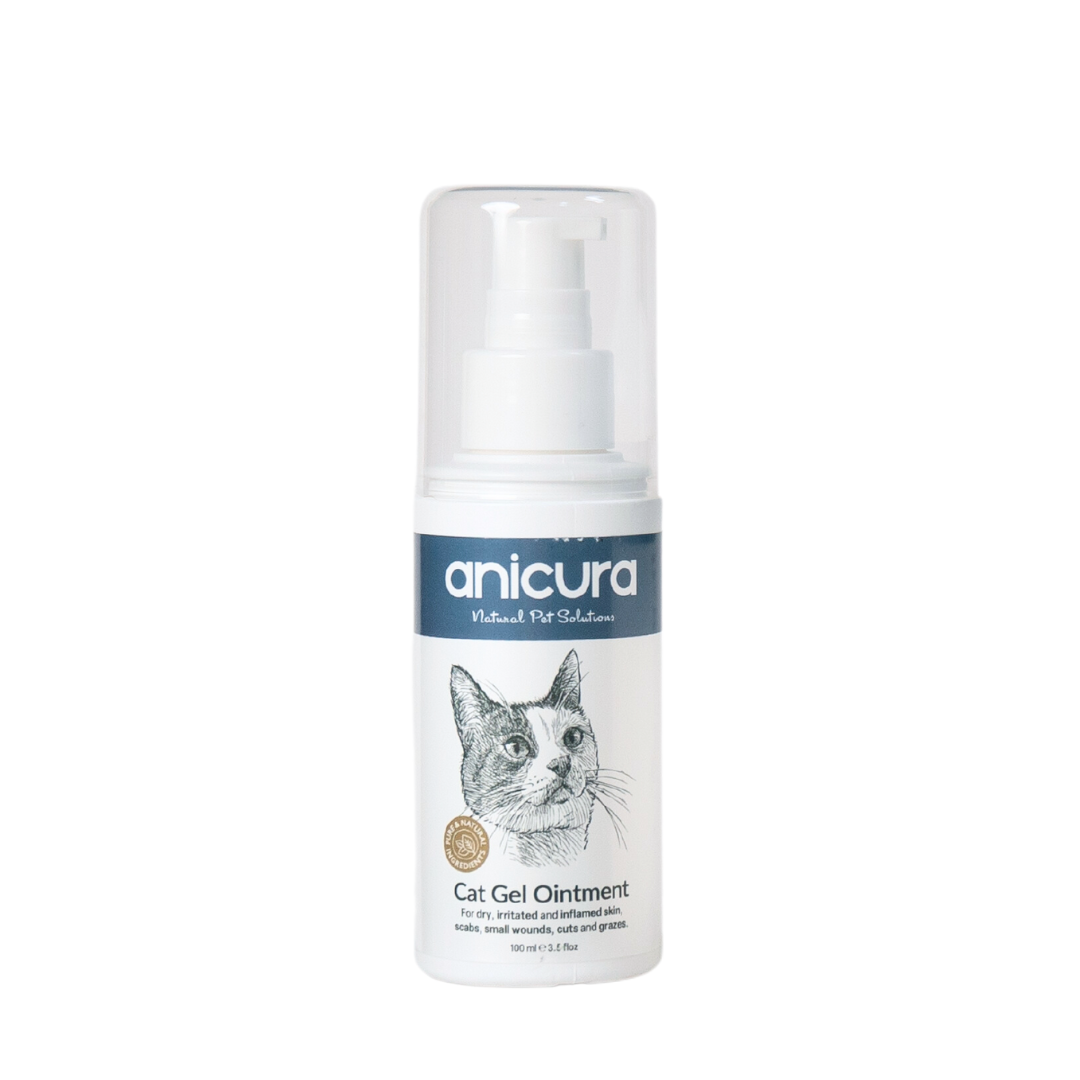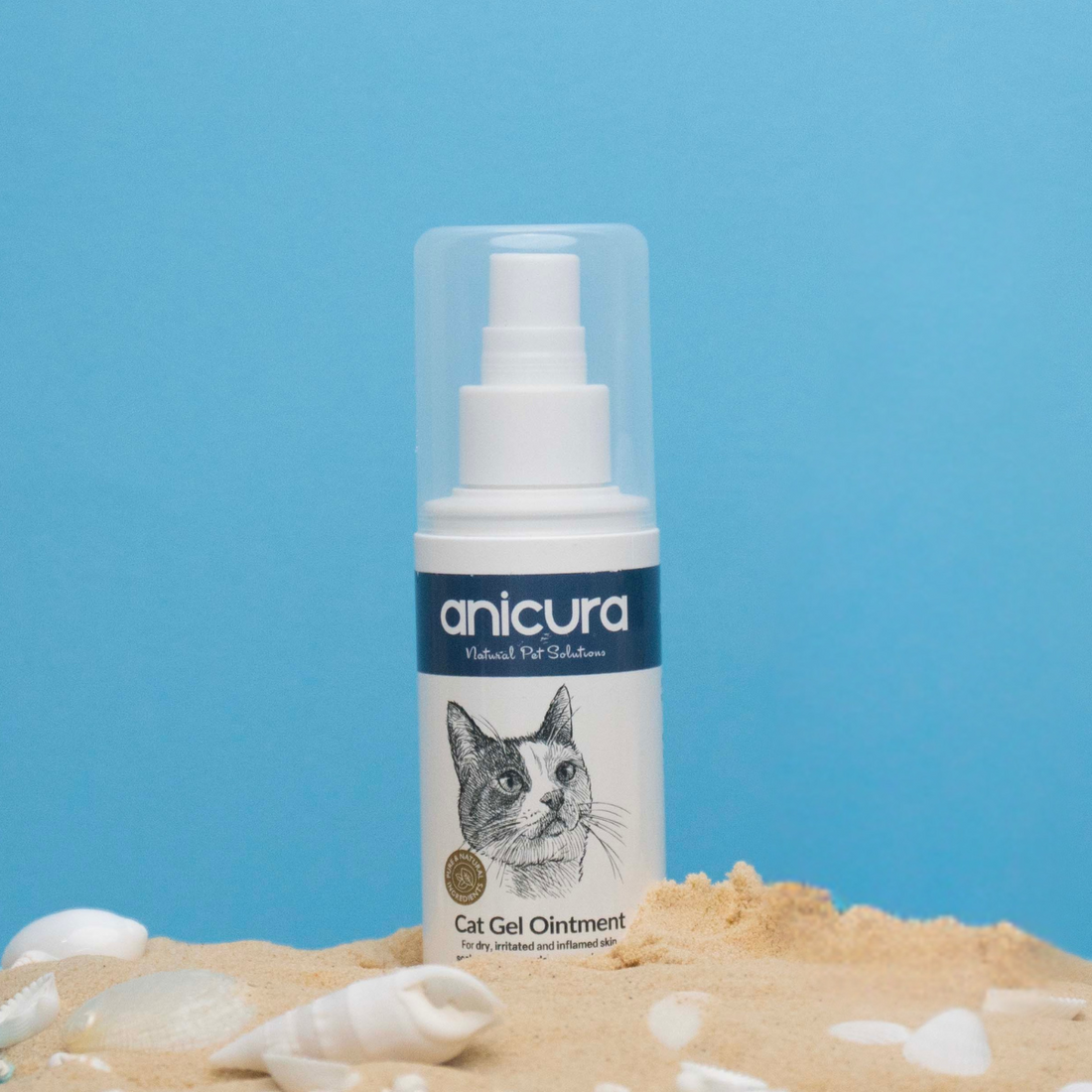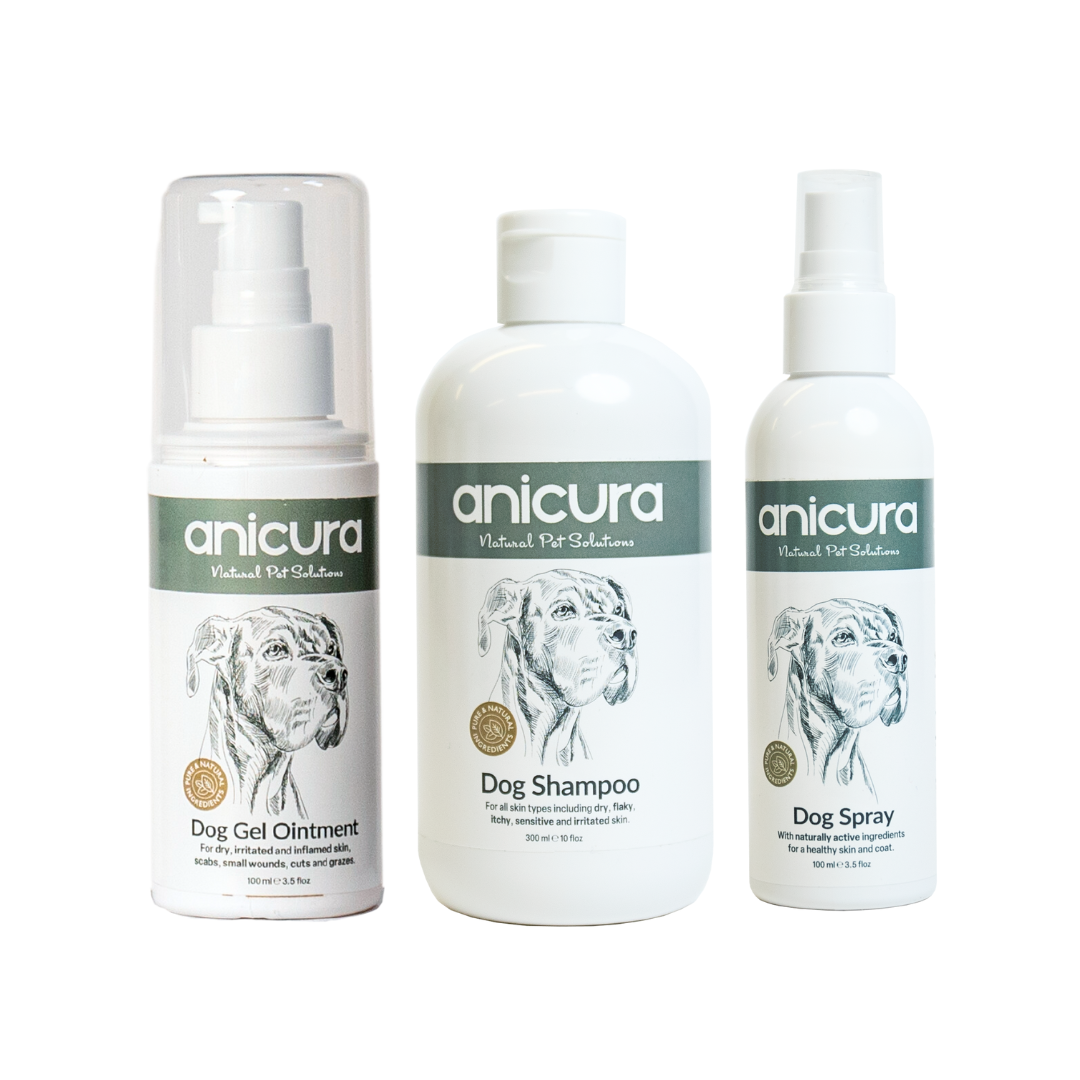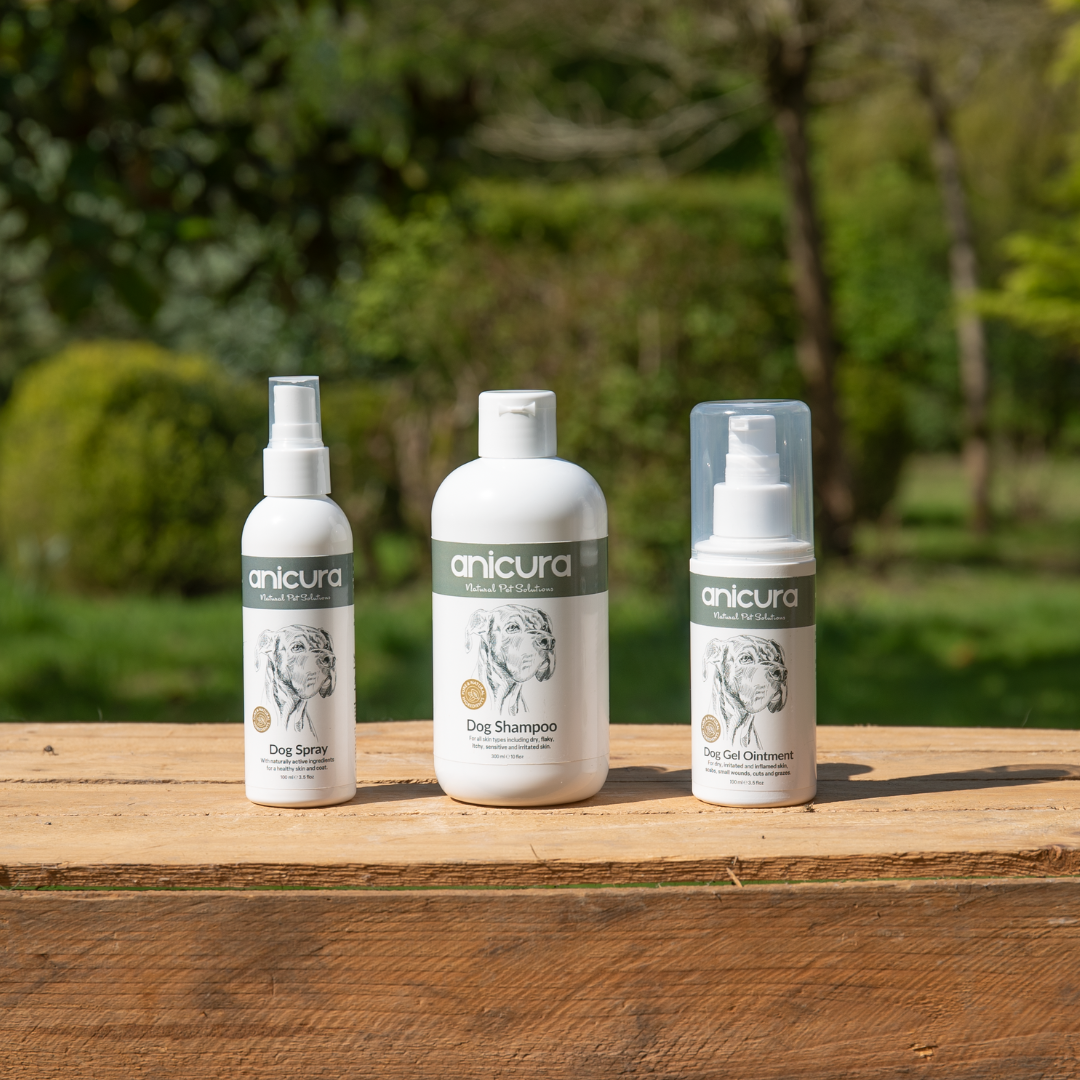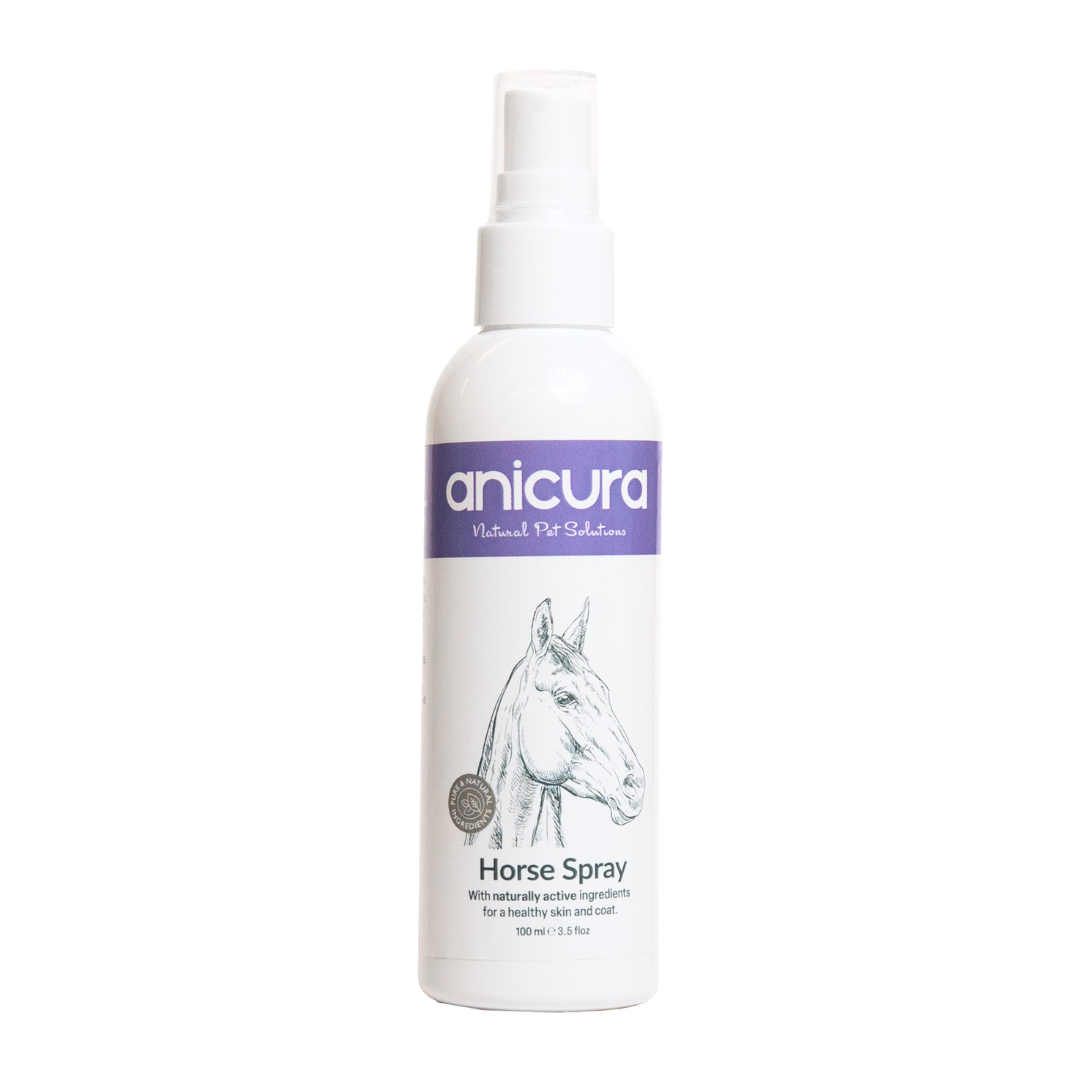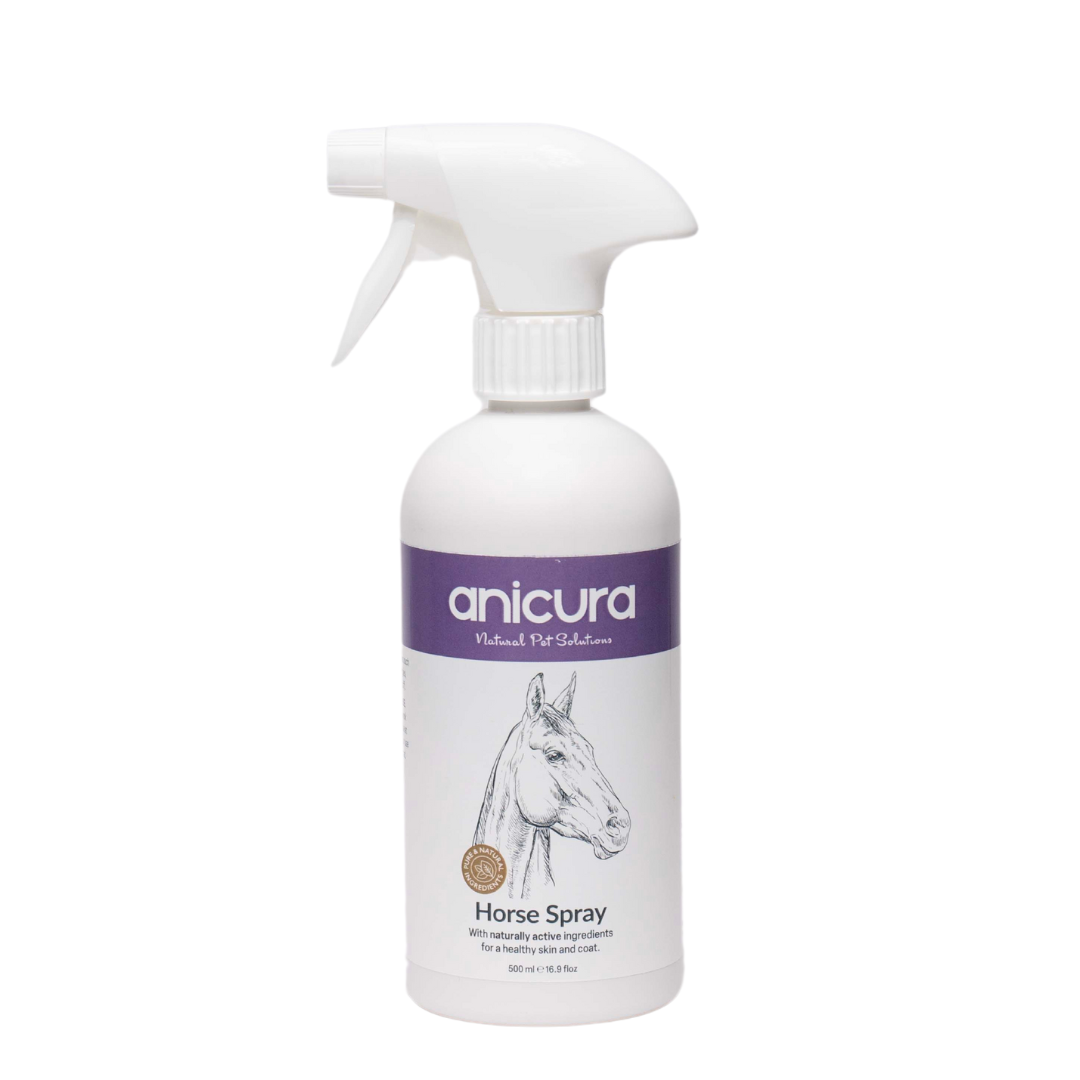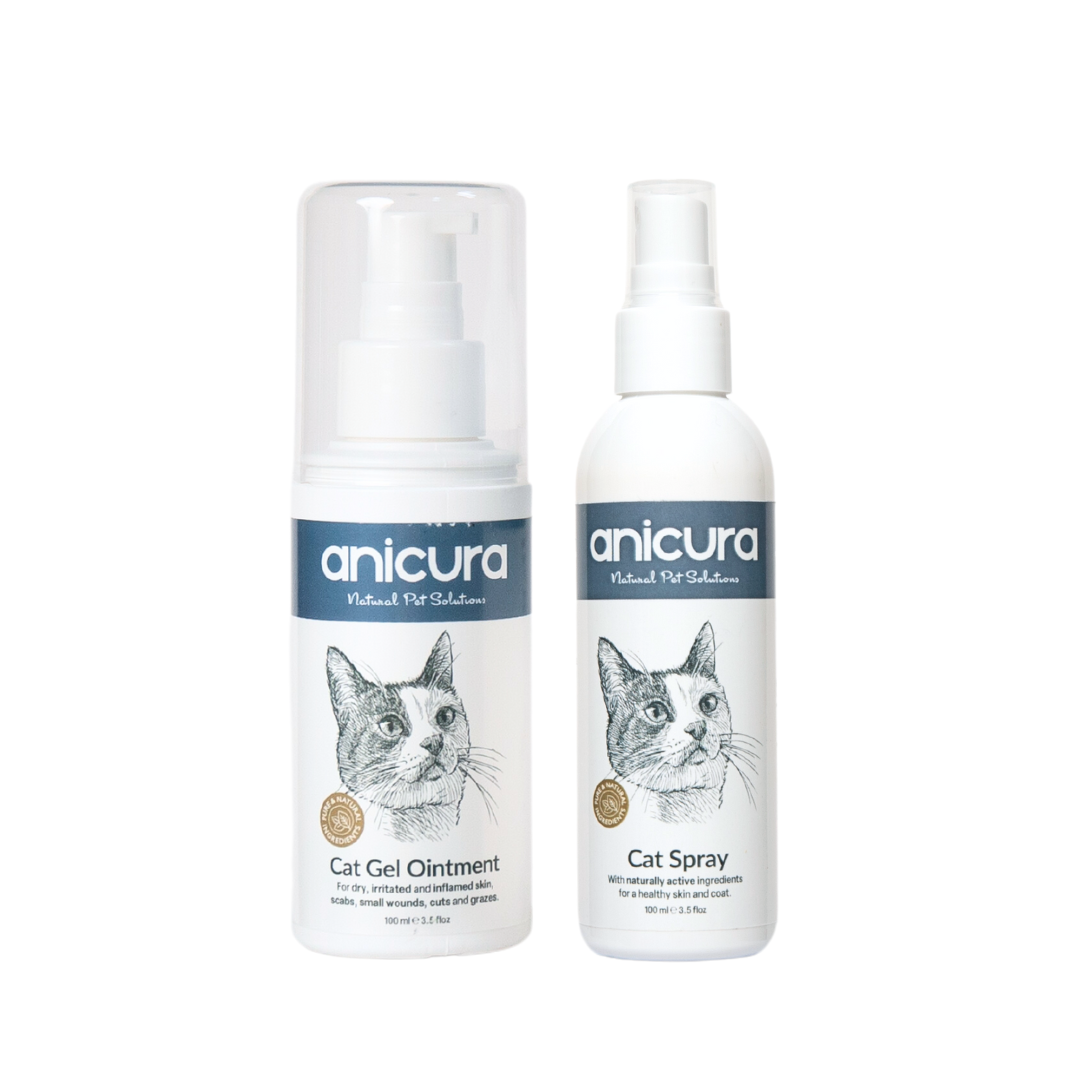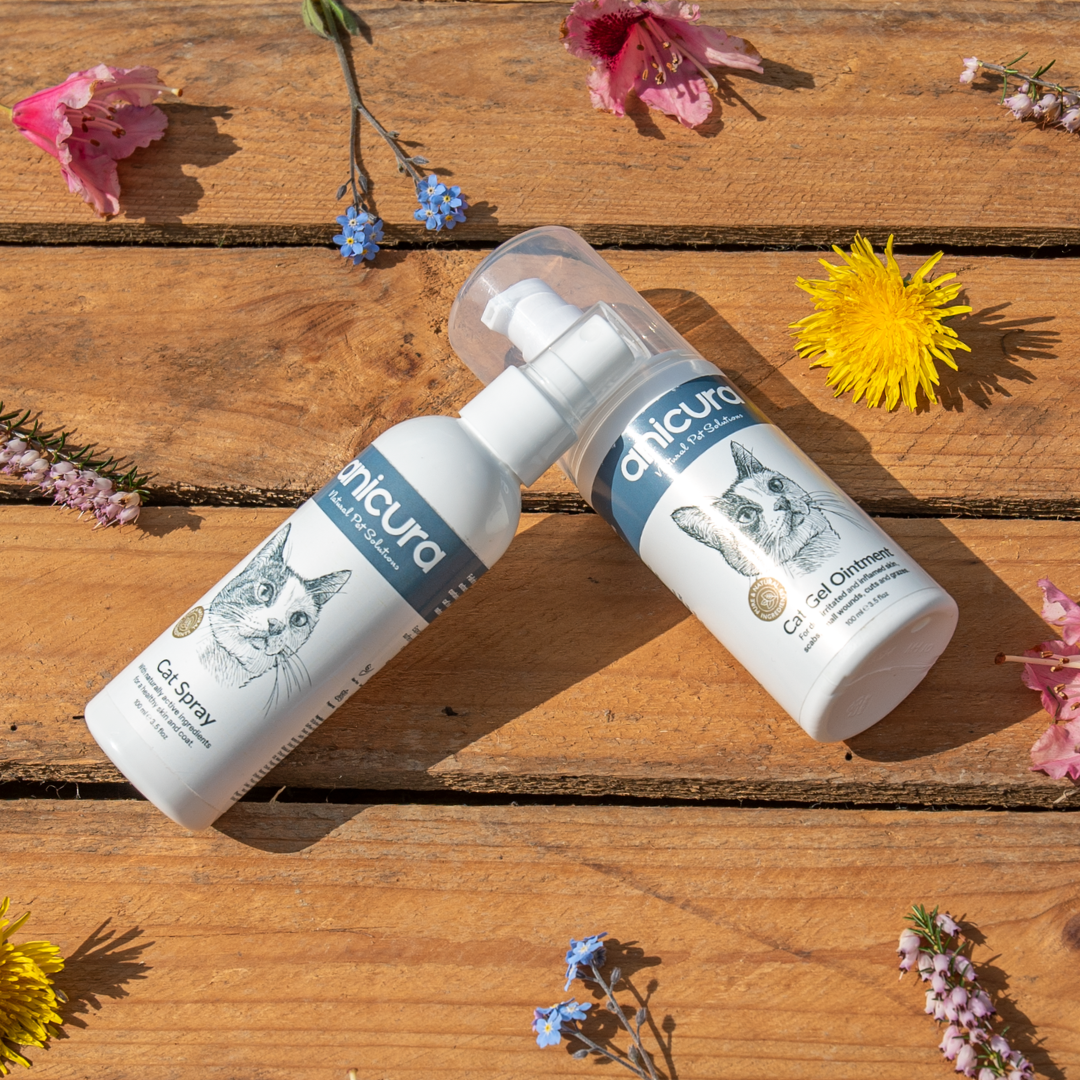Here at Anicura, dry skin conditions such as eczema and dermatitis have been at the forefront of our minds; especially since we actually have over 10 years of experience dealing with problem skin in humans through our sister company Salcura. It’s important to remember that our pets can suffer from eczema too, and that it can be very uncomfortable for them as well as difficult to manage for us. That’s why we’ve dedicated this blog to combatting feline & canine skin conditions like eczema and dermatitis, and provide more insight into helping you look after your pet.
What is eczema/dermatitis?
Eczema and dermatitis are two slightly different conditions, but similar in that they are both a chronic inflammation of the skin. There are lots of different possible causes, but symptoms generally include itchiness and red, rough, dry or flaky skin.
The most common types of dermatitis in pets
Atopic dermatitis (allergic dermatitis)
This form of dermatitis is mostly caused by your pet inhaling or touching environmental allergens or irritants such as pollen, dust and mould. It can also be caused by a food allergy.
Contact dermatitis
Contact dermatitis is caused by an allergen or irritant directly touching your pet’s skin. This could for instance be a grooming product (for example baby shampoo – a substance often used but actually very unsuitable for pets) or a type of chemical flea treatment. It could also be caused by products your pet indirectly comes into contact with, such as the laundry detergent you use to wash their bedding.
Pyotraumatic dermatitis (hot spots or wet eczema)
This form of eczema occurs when certain bacteria break through the skin barrier, resulting in red, oozing sores that are very itchy and uncomfortable, with an unpleasant smell.
Flea allergy dermatitis
As the name suggests, flea allergy dermatitis is caused by an allergic reaction to the saliva of fleas present on your pet.
Trying to find the cause
As all these conditions can look quite similar, we do understand it can be difficult to pinpoint what exactly is going on with your pet. Furthermore, there are often multiple factors at play. That’s why we advocate for a holistic approach – one that tries to avoid immune suppressing medications (that can often have serious side effects) and tries to get as close to the source of the issue as possible. A good starting point can be asking yourself the following questions:
Does your pet’s skin flare up after walks/being outside?
Does your pet’s skin flare up at certain times/in different seasons?
Does your pet’s skin flare up after a flea treatment?
Does your pet’s skin flare up after using certain grooming products or products around the house?
Does your pet’s skin improve when you stop feeding a certain type of food/treat?
Though these questions may not give you clear-cut answers, they might be able to help you narrow down the options and provide suggestions on what to try next. Your vet can also be very helpful in determining your pet’s allergies or sensitivities.
Managing symptoms
Where for some forms of dermatitis (such as flea allergy dermatitis and contact dermatitis) avoiding contact with the allergens/irritants is a relatively ‘easy’ fix, for seasonal allergies this can be a totally different situation. This is where our products could be very useful.
> Our Dog/Cat Spray soothes the skin, whilst feeding it healthy nutrients to become stronger and more able to fend off future flare ups. It’s great for itchy, dry, flaky patches.
> Our cooling Dog/Cat Gel encourages healing in existing wounds/scabs/scratches and forms a protective layer over the skin. This makes it perfect for hot spots.
> Our Shampoo can remove remaining allergens from the fur, reducing the amount and intensity of the contact.
Skin issues are rarely easy to fix or even easy to figure out, so please feel free to contact us if you’d like some advice or support. Our team is always happy to help!
Email us: info@anicura.co.uk
Call us: +44 (0)208 979 3592




